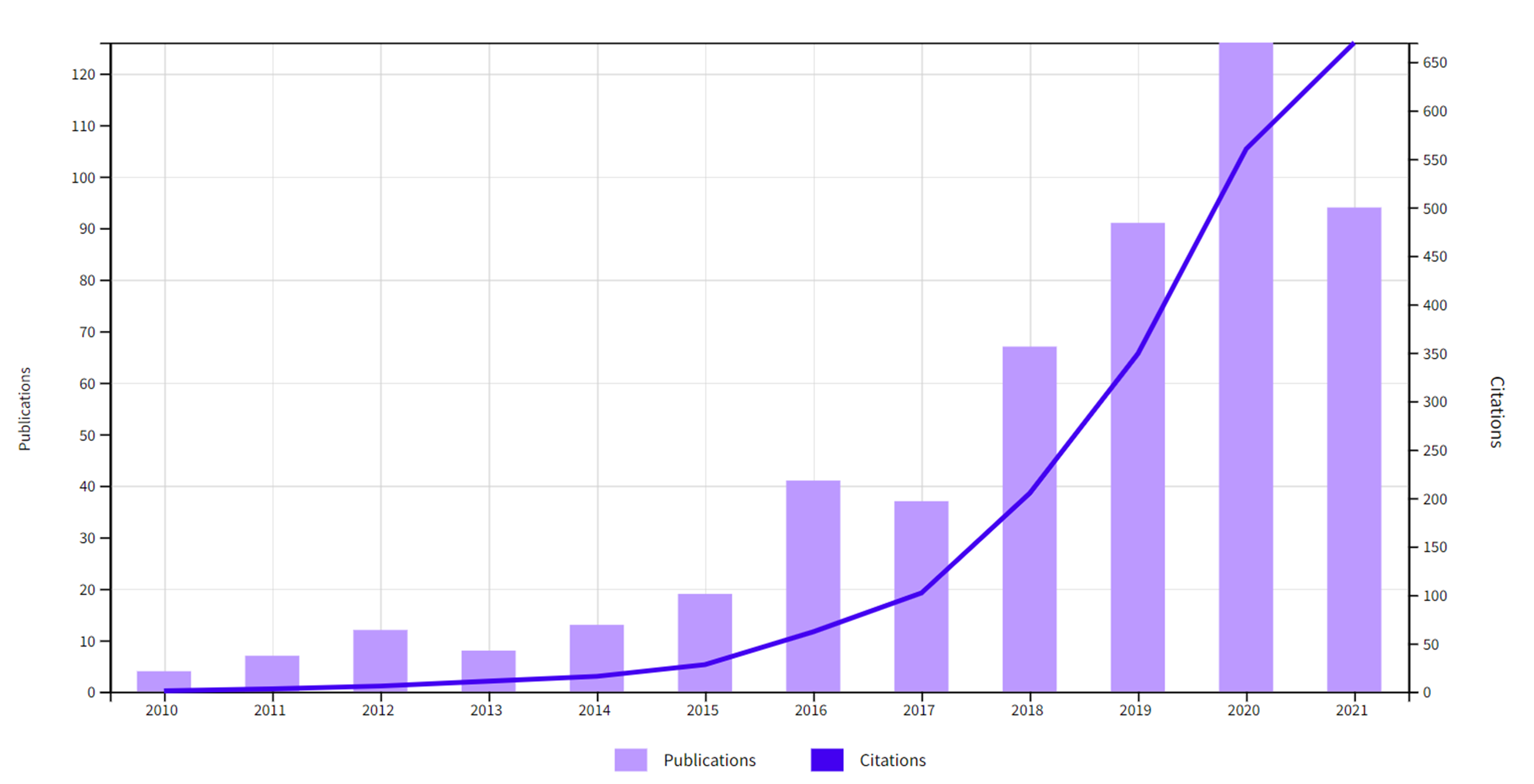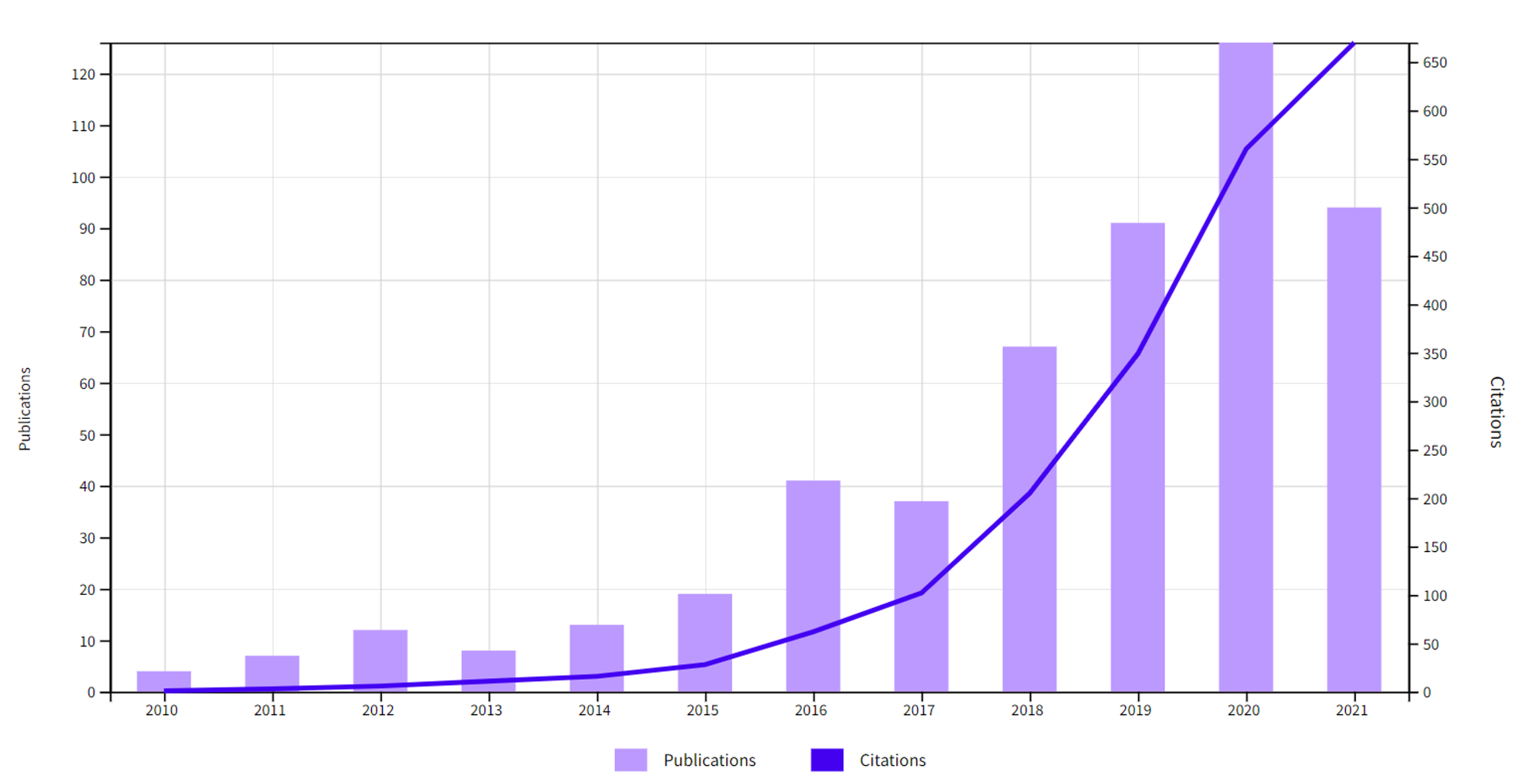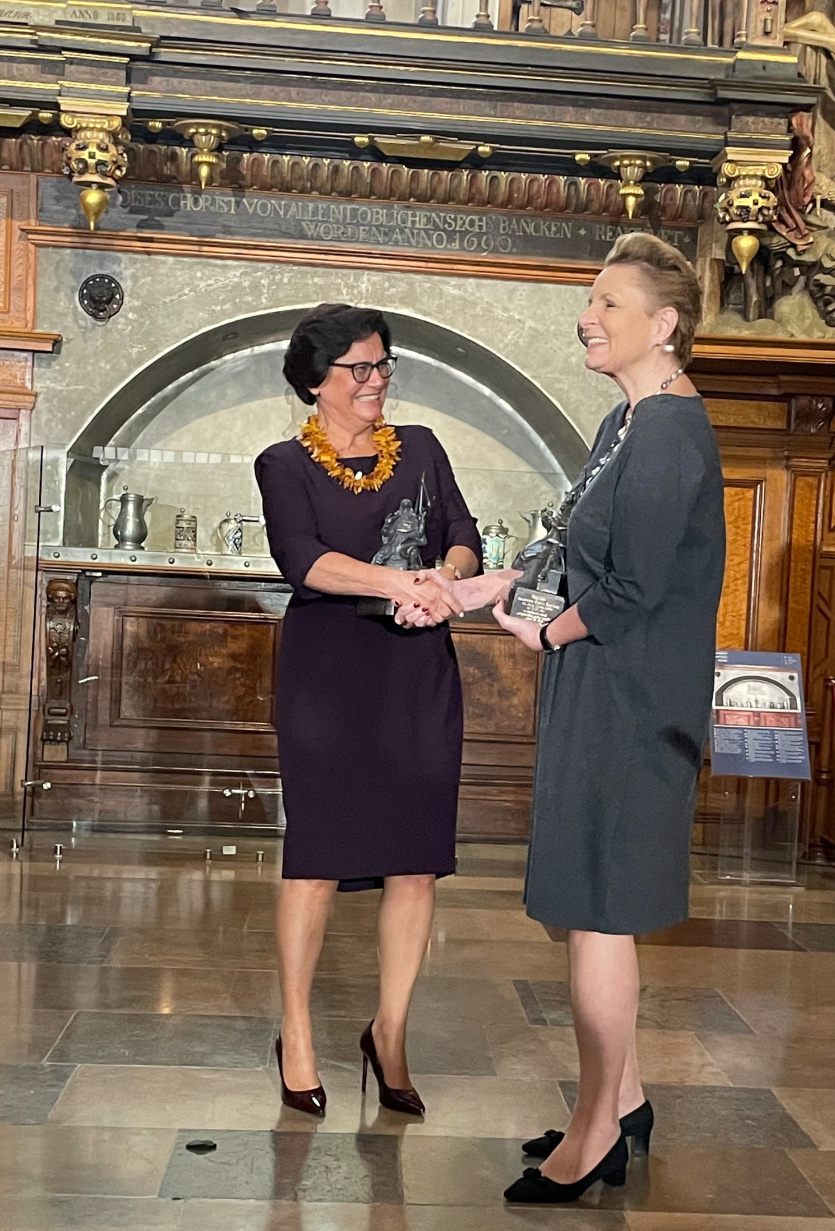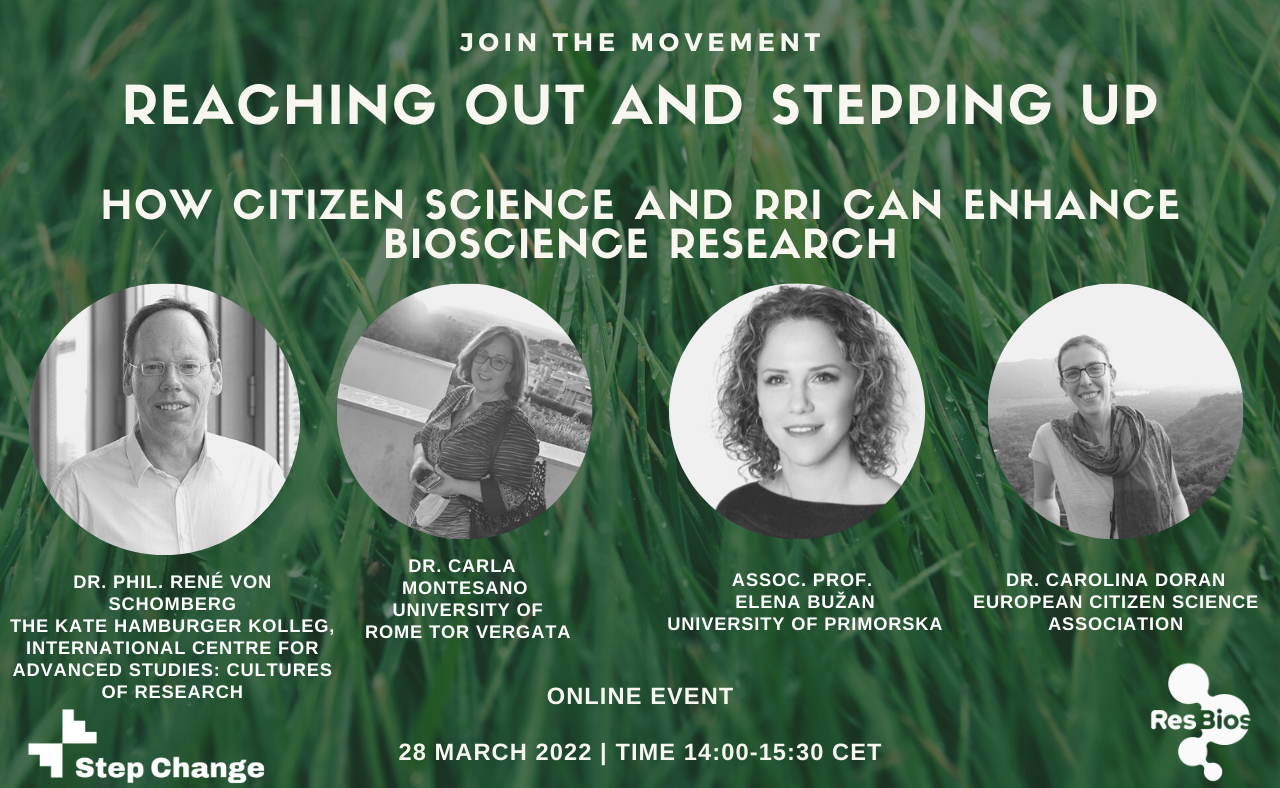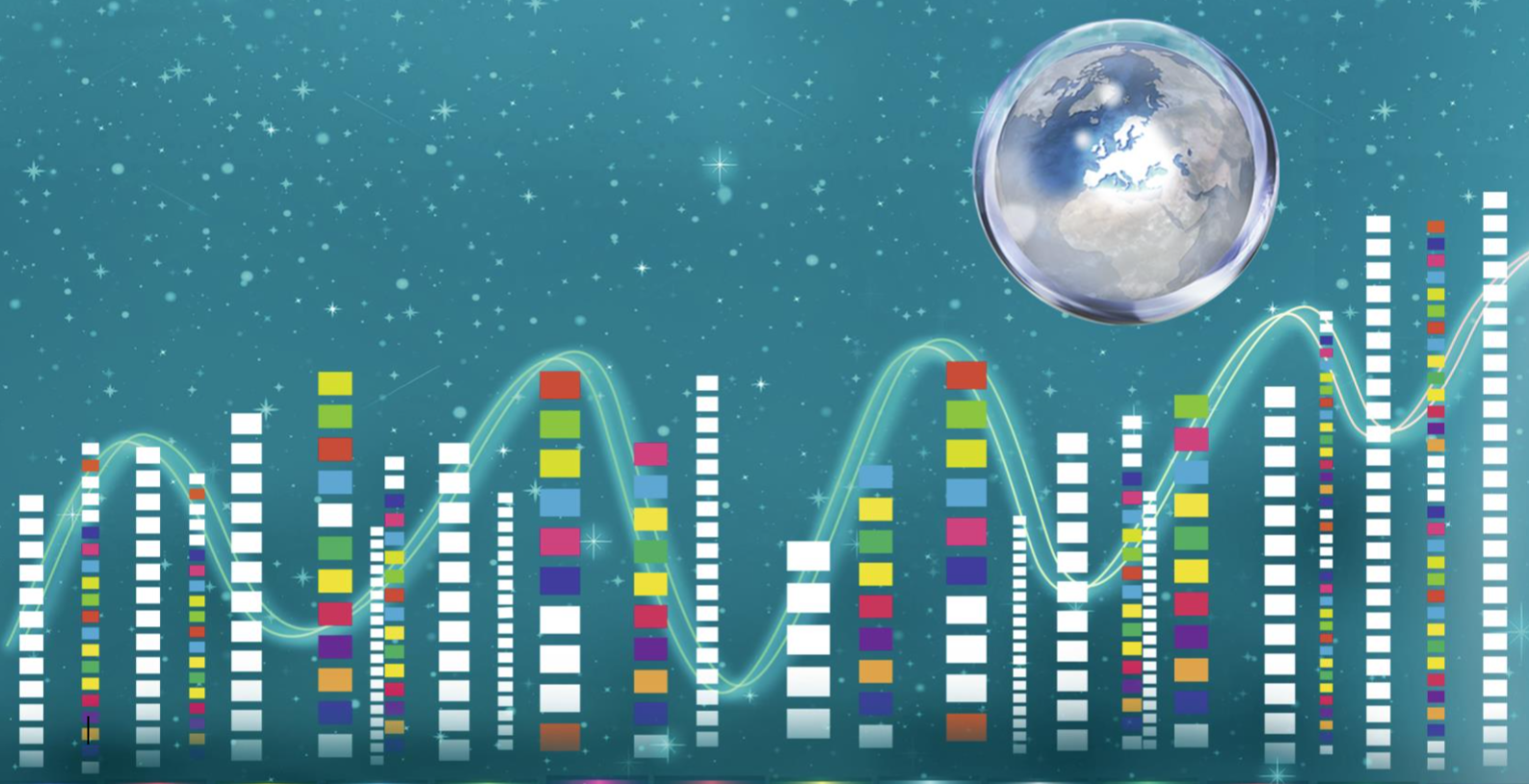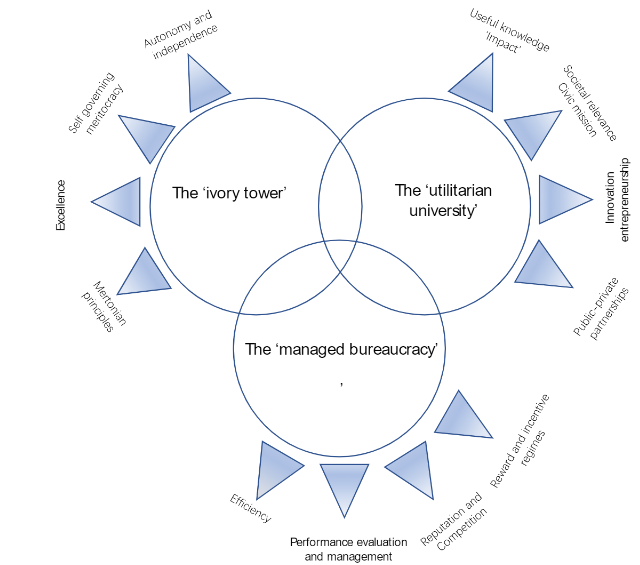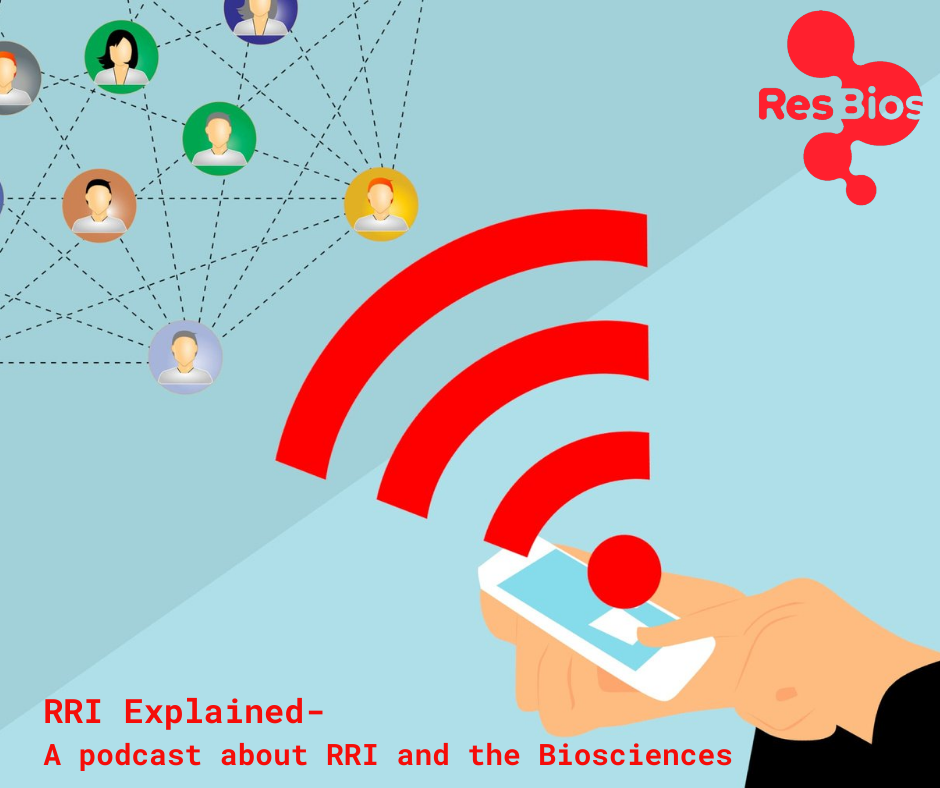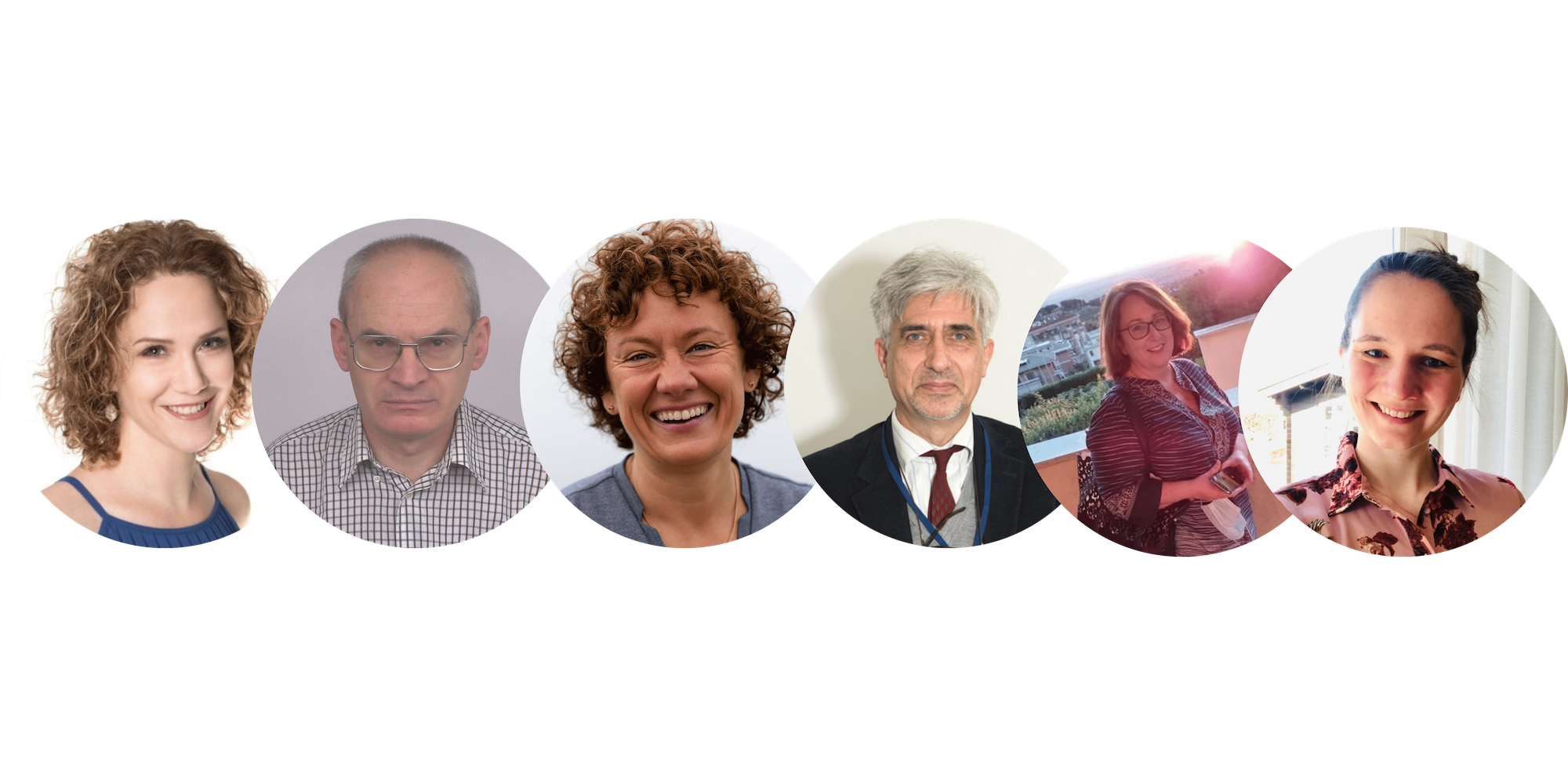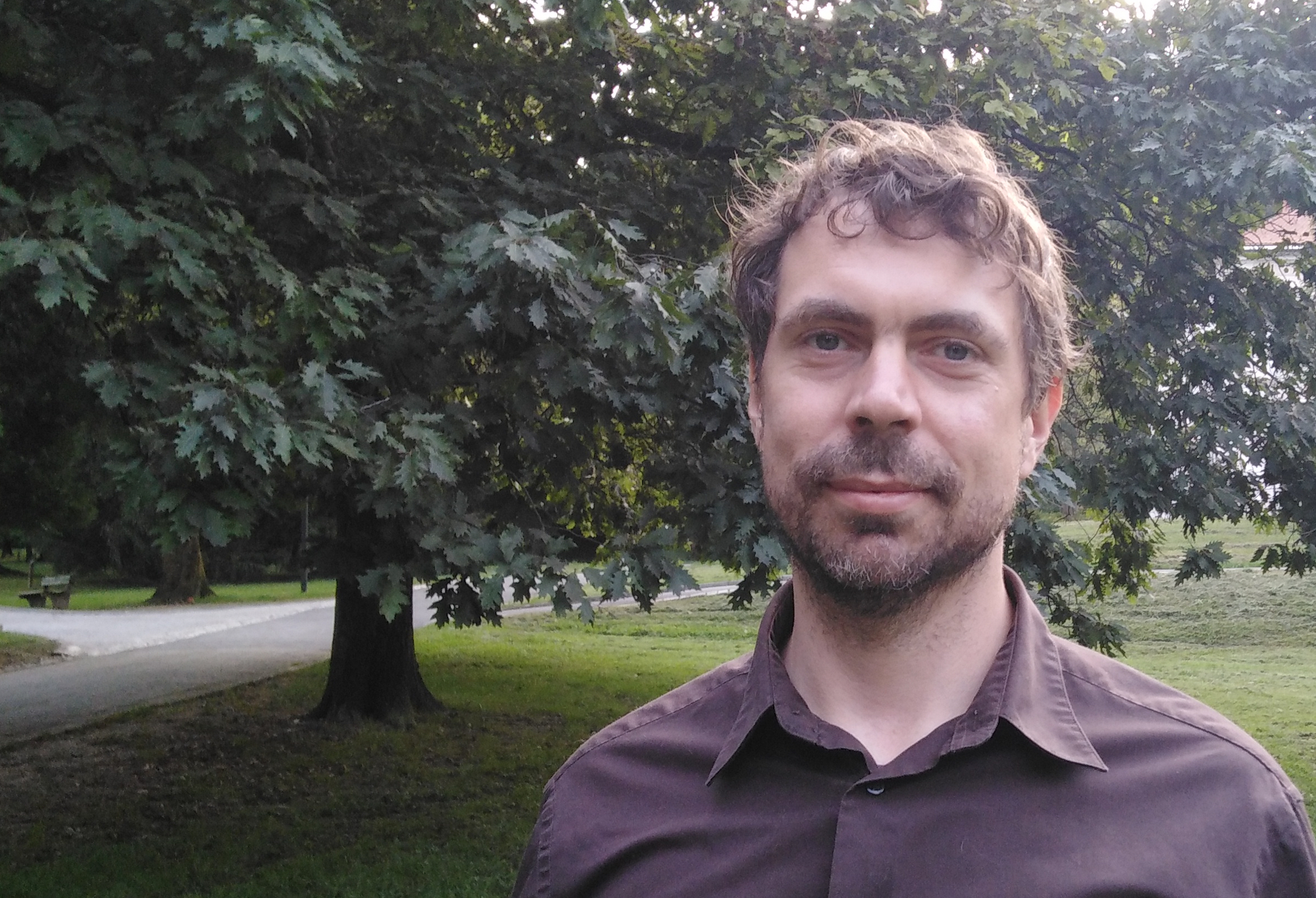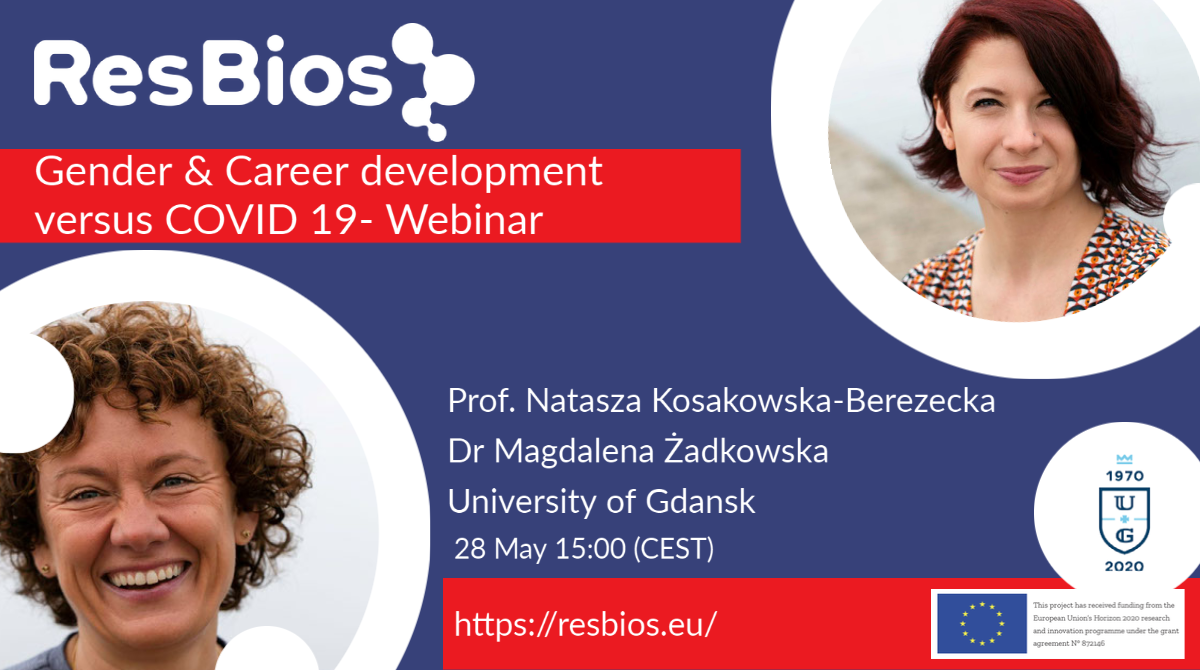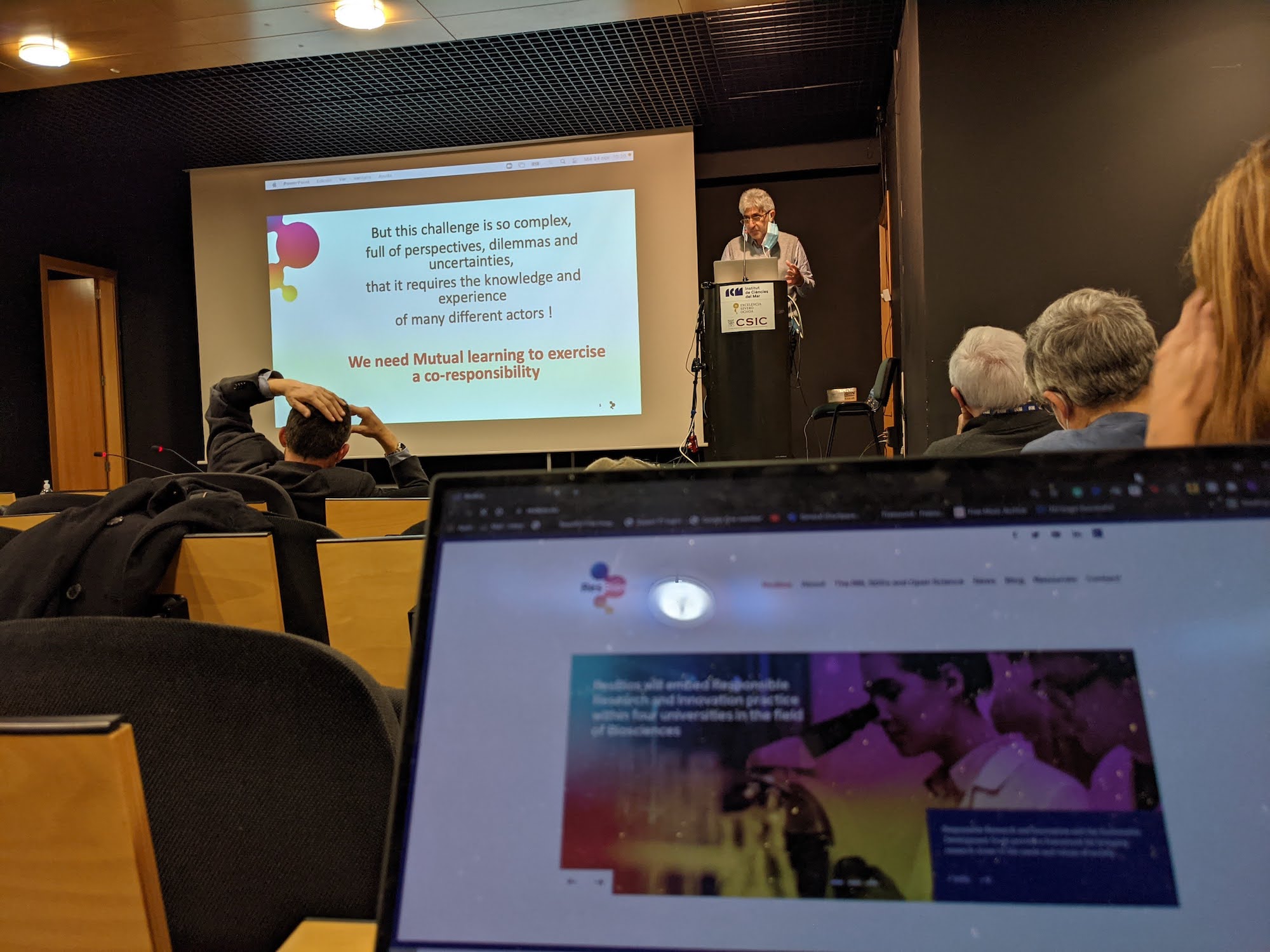
Barcelona Bound – Second Mutual Workshop
In the last week of November, ResBios held its second Mutual Learning Workshop. For many of us it was a fantastic opportunity to meet up in person for the first time since the onset of the global COVID pandemic, and those who could not make the journey were able to contribute to the workshop online. During this week the ResBios team were looked after very well by our wonderful partners from Instituto de Ciencias del Mar (ICM) in (not so sunny) Barcelona.
The two-day workshop was opened by ResBios project leaders Daniele Mezzana and Carla Montesano, from Università degli studi di Roma Tor Vergata. During this introduction, a little time was taken to reaffirm the good work that the project has done so far, as well as the importance of co-development and mutual learning for the ResBios project. In the early days of the project, partners were separated into two groups, either as RRI mentors or partners implementing RRI actions for the first time. Since this time however, it has become increasingly apparent that all ResBios partners still have so much to learn from one another, regardless of previous experience with RRI. This is why these opportunities to share and learn from each other are of the utmost importance for growing relationships with each other, and with society as a whole.
“We need mutual learning to exercise co-responsibility and to face complex challenges”
Over these two days, the overall aim of this workshop was to exchange our experiences so far in implementing RRI within our target institutes, and to learn from our peers; those within the project, but also gaining insights from other coordinators of related projects that use the RRI framework. From this we hope to learn how best to alter our approaches, as we move into the final part of the ResBios project and how we can ensure the long- lasting legacy of the project, another major theme throughout this week’s workshop.
This meeting was broken up into four key sessions, Challenges for responsible research in Biosciences, Mutual Learning in Action, Mutual Learning in Dialogue, and Networking for Responsible Research.
The workshop opened with a reflection on how the ResBios project has progressed since its inauguration in 2020, presented by the project leader from Università degli studi di Roma Tor Vergata. Following this, the current state of RRI and mutual learning, and how these approaches have changed over the past fifty years, was presented to the consortium by Wiebe Bijker of the Norwegian University of Science and Technology, and ResBios advisor, with particular emphasis on how the social contract between science and society has shifted throughout this period, especially in the field of biosciences. Janire Salazar (ICS Barcelona) provided also information about the application of responsible research in Ocean studies.
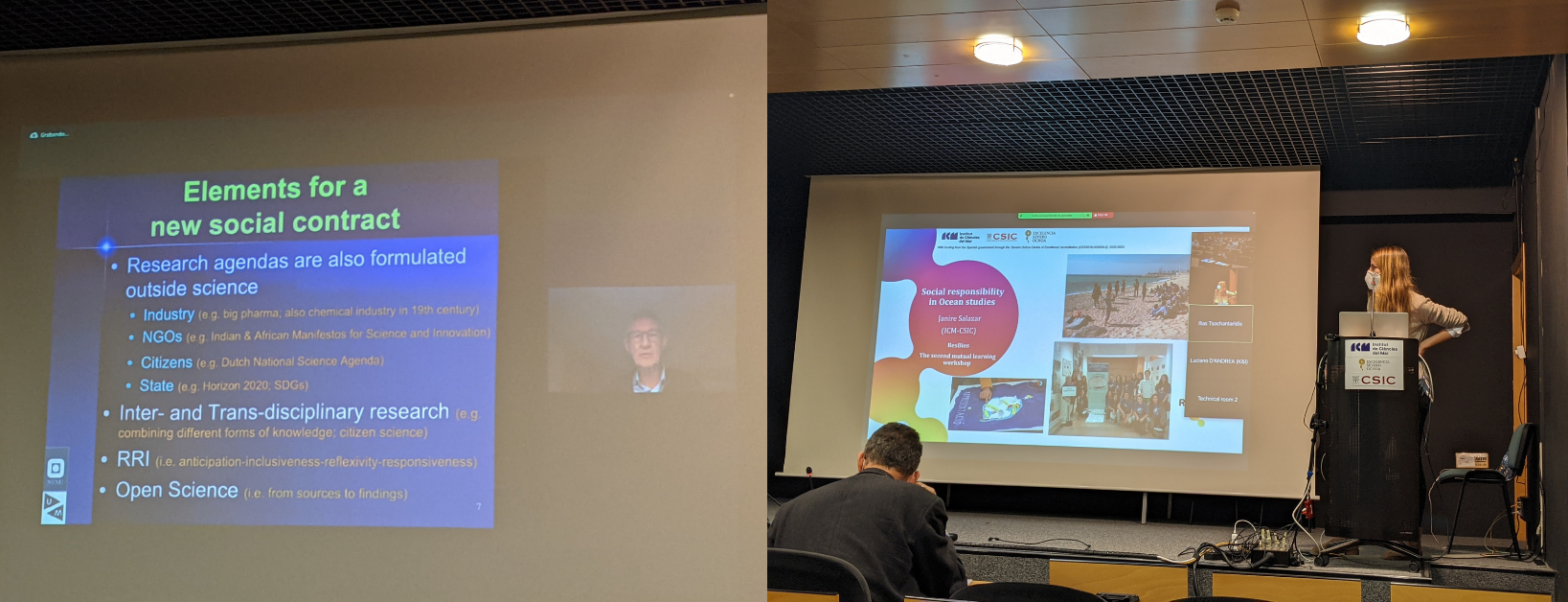
The first session focused on the journey of the ResBios project to date, detailing what actions have been put into place so far to promote the principles of RRI in our target institutions. Each delivery partner gave a state-of-the-art statement on the key grounding actions of the project, as well as presenting details of each of their plans for maintaining the long-term legacy of the project. Following this, we took some time to reflect on the experiences since the start of the project, featuring inputs from Andrea Declich (K&I), Janire Salazar (ICS Barcelona), Aglaia Pappa (Dimokriteio Panepistimio Thrakis), Mariia Nagalievska (Ivan Franko National University of Lviv), and Toni Safner (Sveučilište u Zagrebu Agronomski fakultet). After these presentations all workshop participants took part in group work, where all partners were provided some food for thought about the features of institutional change, and the long term legacy of the ResBios Project.
During the next session, the ResBios team had the privilege of hearing the experience of coordinators from two other EU projects, and learning how these related projects use RRI approaches within a different context. This included contributions from Stefan Philipp of the CHERRIES project, and Aïda Díaz from the GRACE RRI project. Both of these projects use RRI but in very different ways. CHERRIES use this framework to connect healthcare workers with the needs of society, to help address current issues within the modern health care institutes across Europe, and GRACE RRI, aims to create guidelines on how to implement long-term governance for research institutes and funding bodies across Europe, promoting “Science with and for Society”. This will be done by the creation of an eight-year road map for institutes to follow; and consequently, hope to ensure the long-term sustainability of the project’s outcomes. During this session, the consortium was also presented with updates from the projects delivery partners, where the ResBios Grounding actions have been implemented, including contributions from RRI mentors; Dimitar Djilianov (AgroBiotech Institute), Julia Holzer (University of Bremen); Magdalena Żadkowska and Natasza Kosakowska-Berezecka (University of Gdansk), Elena Bužan (University of Primorska) , and Carla Montesano (UNITOV).
In the final session of the workshop, the constorium were presented contributions from high representatives of the 4 RPOS, where ResBios grounding actions are under implamentation. This included presentations from:
– Josep-Maria Gili (ICM-CSIC) (in presence)
– Nikica Šprem (UNIZG-FAZ) (online)
– Yuriy Plevachuk (IFNUL) (online)
– Raphael Sandaltzopoulos (DUTH) (online)
Following this, Carla Montesano announced the development of an International Network for Responsible Biosciences (INRB), which was born from contributions made at the UNESCO Chair in Biotechnology and Bioethics of University of Rome Tor Vergata. The aim of the INRB would be to build a culture of knowledge sharing, co-creation, and co-responsibility between bioscience research institutes. During this annoucment, the ResBios consortium heard from external stakeholders and the project’s advisory board, including contributions from; Luiz Alcantara/Marta Giovanetti (FIOCRUZ, Brazil), Luiz Zerbini (ICGEB, South Africa), Pavel Ovseiko and Vasiliki Kiparaglou (both from the University of Oxford), who were able to provide some additional global context to the issues facing the biosciences.
The problems that science and society currently face will increasingly rely on the expertise and the work done by those within the field of biosciences as well as a combination of these disciplines. Moving forward, we all need to ensure that society has faith in the solutions and advice brought forward through these avenues of inquiry. That is why we need to continue to learn from each other, and adopt an increasingly transparent approach to the work we do, as well as promoting transdisciplinary and international collaborations between our organisations. In the future the “wicked” problems we will face will not have simple solutions, and we will all have to face them together. Therefore, by using the connections the project has created over the past 18 months and the long-standing links our partner institutes have, the INRB already has a good foundation to build upon, and by using the brand and recognition of the ResBios project, we can hopefully grow this network quickly.
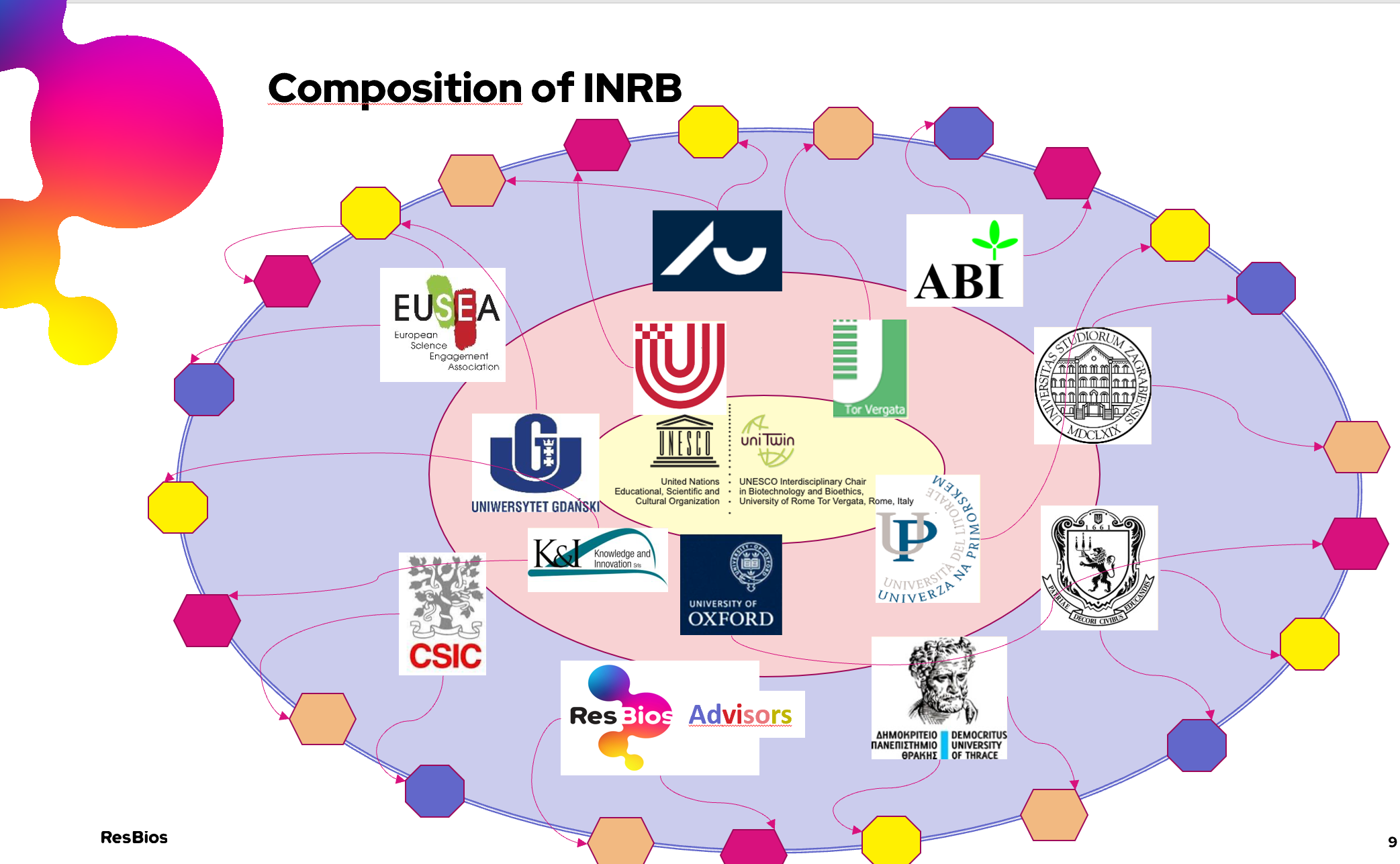
Working closely with our advisors, we hope to start building our relationship with those within the INRB by promoting the good work done by other projects, sharing knowledge and relevant updates, and the organisation of webinars at which current issues can be discussed and addressed as a community.
We have so much to learn from one another, and it is the hope of the ResBios project that we can build a relationship between bioscience institutes so that we might better address the issues we will all face in the future. Let’s continue to work together.
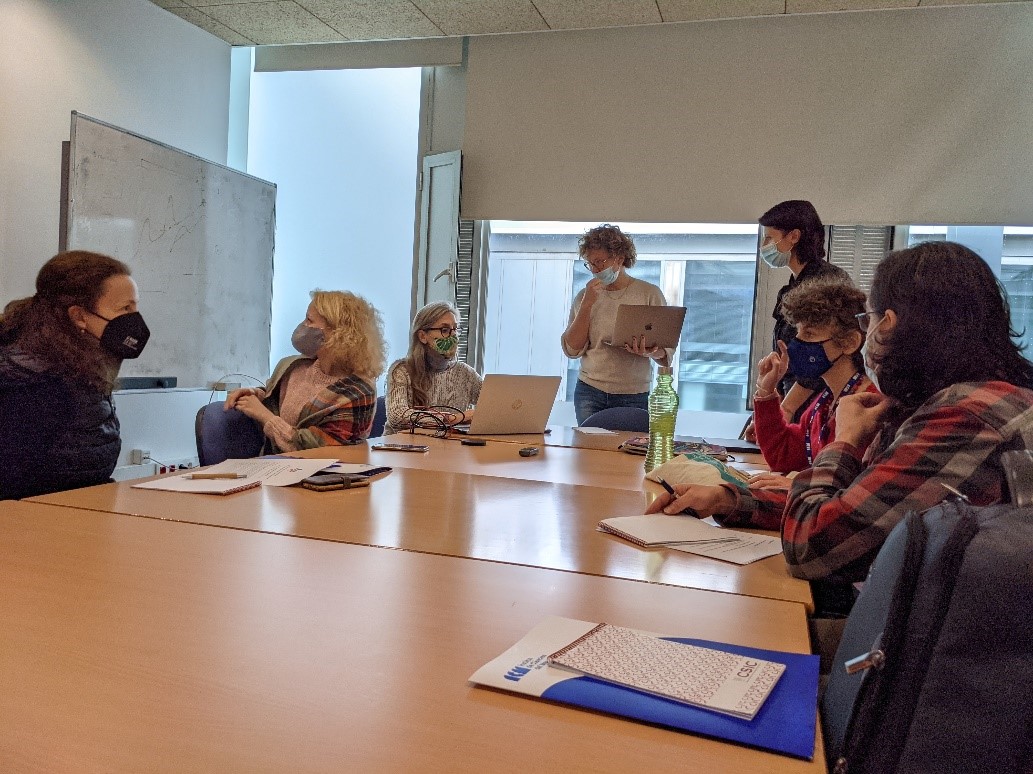
More information: comms@resbios.eu
